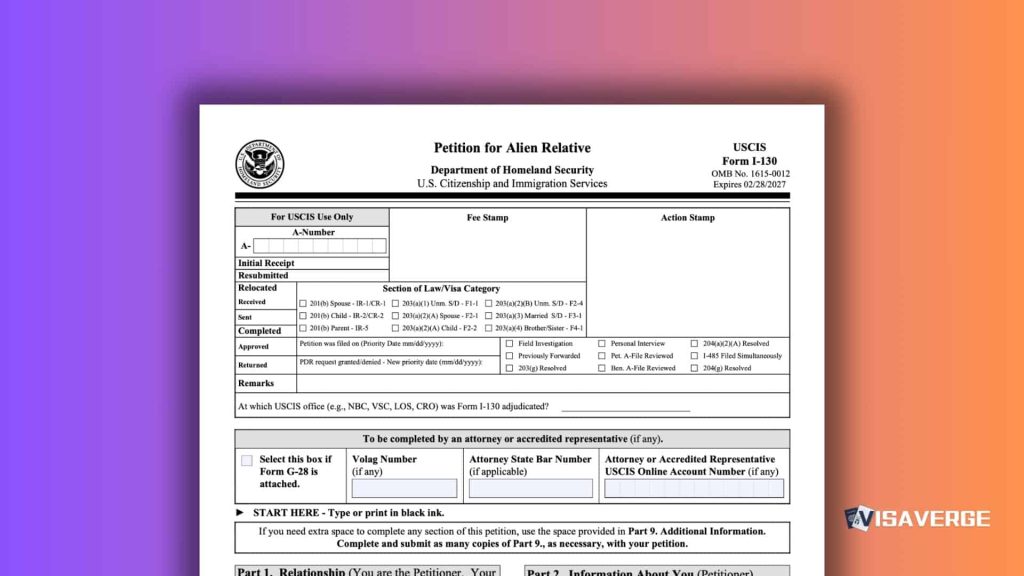Key Takeaways
01
The FLSA sets standards for minimum wage, overtime pay, and exemptions for various job roles like insurance claims adjusters.
02
Insurance claims adjusters’ exemption status under FLSA depends on duties, discretion, and independent judgment in their work.
03
Legal disputes and updates continuously refine exemption criteria to match evolving job roles and ensure compliance with labor laws.
FLSA Exemptions and Insurance Claims Adjusters
Insurance claims adjusters may not be entitled to overtime under the Fair Labor Standards Act (FLSA) due to its complex exemption criteria. This situation hinges on their job responsibilities and level of discretion.

Why it matters: The classification of adjusters as exempt or non-exempt affects both worker compensation and companies’ operational costs, striking a balance between fair labor practices and business efficiency.
The big picture:
– The FLSA mandates overtime pay for hours worked over 40 per week but exempts some roles like administrative and professional employees.
– Adjusters’ roles involve investigative tasks and decision-making, potentially qualifying them for exemptions.
What they’re saying:
Legal precedents show that courts often rule on the degree of discretion exercised by claims adjusters, with many being classified as exempt due to their independent judgment responsibilities.
Yes, but:
– Not all claims adjusters automatically qualify for exemptions. The specific job duties and autonomy given greatly influence their exemption status.
Between the lines:
– Employers must accurately categorize employees following FLSA criteria to prevent legal consequences like fines or lawsuits.
– Discrepancies in duties versus recorded job descriptions often trigger disputes.
By the numbers:
– Misclassification can lead to significant costs: fines, back pay, and potential reputational damage for non-compliance.
The bottom line:
Understanding FLSA criteria is essential for both employers and adjusters. Maintaining transparent job descriptions and adhering to regulations ensures fair worker compensation and compliance.
Taking a Closer Look
The world of work compensation is a complex one, particularly when it comes to understanding who is eligible for certain benefits like overtime. Among the many professions, insurance claims adjusters stand out due to their unique mix of investigative and evaluative responsibilities. For these professionals, the question of whether they are entitled to overtime pay is particularly nuanced, hinging critically on the Fair Labor Standards Act (FLSA) exemption criteria.
Overview of FLSA and Its Exemption Criteria
The FLSA is a critical piece of U.S. legislation enacted back in 1938, aiming to set fair labor standards nationally. Primarily, it establishes minimum wage, overtime pay eligibility, recordkeeping, and youth employment standards affecting employees in the private sector as well as Federal, State, and local governments. According to federal law, workers covered by this act must receive time-and-a-half pay for any hours worked beyond the standard 40-hour workweek. However, the FLSA also carves out exemptions for certain categories of employees, which means they do not qualify for overtime pay.
These exemptions aim to account for the operational realities of various jobs, ensuring that not all professions are painted with the same broad brush regarding overtime eligibility. Key FLSA exemptions fall under categories like executive, administrative, professional, and outside sales employees, each with its own set of criteria.
Historical Context and Rationale
The rationale behind these exemptions is to recognize the significant amount of autonomy and responsibility held by workers in these roles. Historically, jobs that require regular decision making, professional judgment, and advanced knowledge have been deemed exempt from overtime. The fundamental idea is that these positions carry a higher level of independence typical of managerial or professional roles. Over time, these exemptions have been scrutinized and refined to match the changing work environment and the evolving nature of businesses and their demands.
Understanding Key Terms and Concepts
To appreciate how the FLSA exemption criteria apply to insurance claims adjusters, it’s essential to break down a few critical terms. An “exemption,” in this context, means that the employee is not covered by the statutory requirement for overtime compensation. “Administrative employees” are a focus because many claims adjusters perform tasks that straddle the line between administrative work and professional duties. According to the Department of Labor, administrative exemptions cover employees primarily involved in non-manual work related directly to management policies or general business operations, where the employee exercises discretion and independent judgment on significant matters.
Application of FLSA Exemption to Insurance Claims Adjusters
Insurance claims adjusters often have job duties similar to those deemed eligible for administrative exemption. These can involve reviewing insurance claims, examining the facts surrounding claims, determining the extent of the insurance company’s liability, and reclaiming any fraud attempted by claimants. They hold the power to recommend or deny claims, often requiring discretionary judgment—a key element in meeting the criteria for exemption under the FLSA.
However, whether an adjuster truly meets the FLSA exemption criteria largely depends on the specific duties and level of discretion used. If their tasks are tightly controlled by company regulations—leaving no room for independent judgment—they might not qualify as exempt. There’s a subtle nuance here: while many claims adjusters exert a great deal of discretion and judgment, each case can differ vastly, making blanket categorizations challenging.
Enforcement and Oversight
The U.S. Department of Labor is responsible for enforcing FLSA regulations. Its Wage and Hour Division investigates complaints and ensures compliance with applicable labor laws. When disputes arise concerning the classification of insurance claims adjusters, it’s often because the exact nature of the employee’s duties hasn’t been adequately documented or evaluated. Employers must maintain accurate records and job descriptions to avoid potential conflicts or penalties.
Impact on Different Stakeholders
The implications of exemption under FLSA criteria spread across various fronts. For insurance companies, categorizing claims adjusters as exempt can reduce operational costs associated with overtime pay. However, it can also risk worker dissatisfaction if adjusters feel they’re unfairly deprived of compensation for extended work hours. On the employee side, being classified as exempt might call for renegotiated salaries and benefits to adequately compensate for extra hours spent on the job.
Legal Precedents and Case Studies
Several legal cases further illustrate the application of the FLSA to insurance adjusters. In one notable case, insurance claims adjusters were indeed ruled as exempt under the administrative exemption because their primary duties involved complex problem-solving and significant decision-making authority. Courts often assess the degree of discretion, judgment used, and impact of the employee’s decisions on business operations to arrive at their determination.
Recent Amendments and Changes
The criteria for exemptions and how they’re applied are periodically updated to align with employment trends. It reflects a broader understanding of the roles and responsibilities of various professions. In recent updates, there has been a movement to ensure greater fairness and clarity, for instance, requiring more detailed job descriptions and closer adherence to established standards before imposing exemptions.
Controversies and Public Discourse
Discussion around FLSA exemptions remains a hot topic, often becoming a point of contention in debates about fair labor practices. Critics argue that some categories of workers, such as insurance claims adjusters, are overburdened and undercompensated, advocating for a reevaluation of what qualifies as ‘exempt.’ Proponents, however, contend that higher responsibility meriting exemption correlates with greater opportunities for other compensatory measures like bonuses or enhanced benefits.
Real-World Applications and Examples
Take, for example, an insurance claims adjuster working on complex medical insurance cases. This adjuster needs to apply medical knowledge to review cases, converse with healthcare professionals, and interpret insurance policies’ legal nuances. These job functions may qualify them as exempt. Yet, another adjuster processing straightforward home insurance claims with strict procedural guidelines may not have the same level of discretion or autonomy, placing them outside this exempt category.
Consequences of Non-Compliance
Failure to comply with the FLSA can have hefty consequences. Companies can face fines, back pay litigation, and damage to their reputations. Therefore, it’s crucial for businesses employing insurance claims adjusters to diligently assess job roles, keeping detailed records that align workers’ duties with FLSA criteria.
Pending Legislation and Future Considerations
As labor markets evolve, pending legislative changes aim to narrow the gaps and ambiguities in the FLSA exempt classification. Policymakers continuously explore updates that better reflect the diverse roles modern employees hold, potentially redefining or expanding current exemption benchmarks. Stakeholders should stay informed through platforms like the Department of Labor’s website which offers authoritative updates and guidelines.
Addressing Common Misconceptions
A common misconception is that all insurance claims adjusters automatically qualify as exempt. This isn’t always true, as each case needs individual assessment against the FLSA criteria. It must be underscored that job titles alone don’t designate exemption status; the actual job duties and level of discretion are the primary determinations.
Conclusion and Resources for Further Information
Understanding the FLSA exemption criteria is vital for employers and employees alike, particularly insurance claims adjusters. Companies should strive for transparency in job descriptions and maintain compliance with labor standards, while employees can benefit from knowing their rights. For further assistance, the Department of Labor provides invaluable resources, and analysis from VisaVerge.com highlights evolving trends and the broader context of employment laws affecting global mobility.
Overall, while the landscape of labor laws can seem daunting, gaining clarity on essential terms and criteria is the first step toward ensuring fairness and compliance within workplaces.
Learn Today
FLSA (Fair Labor Standards Act): U.S. law establishing minimum wage, overtime pay, recordkeeping, and youth employment standards, with specific employee exemptions.
Exemption: Exclusion from FLSA overtime requirements, based on criteria like autonomy and responsibility in job performance.
Administrative Exemption: FLSA category for employees doing non-manual work related to management, exercising discretion and judgment on significant matters.
Discretionary Judgment: The ability to make decisions using personal judgment, often a requirement for employment exemptions under FLSA.
Wage and Hour Division: U.S. Department of Labor branch responsible for enforcing labor laws, including FLSA compliance and investigation.
This Article in a Nutshell
Navigating FLSA exemptions is vital, especially for insurance claims adjusters. Their eligibility for overtime pay hinges on job duties: exercising discretion qualifies them as exempt, while routine tasks might not. Understanding these nuances safeguards both companies and employees, ensuring fair compensation and compliance with labor laws in an evolving work landscape.
— By VisaVerge.com
📚
Related Articles
01
Are Veterans Exempt from Overtime Pay?
→
02
FLSA Overtime Rules: Exemptions for First Responders
→
03
FLSA Exemptions: Overtime Rules for Blue-Collar Workers
→
04
FLSA Overtime Exemption for High Earners
→
05
FLSA Overtime Rules for Computer-Related Occupations
→













